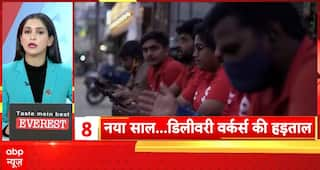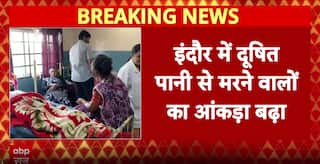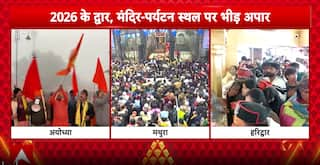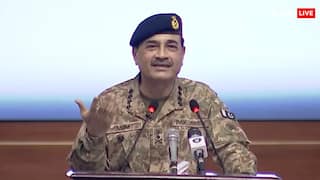EXPLAINED | What Is So Contentious About The NCT BILL 2021 Making The Opposition Call It 'Unconstitutional'?
The Centre on Monday introduced the Government of National Capital Territory of Delhi (Amendment) Bill, 2021 in Lok Sabha that decides the roles of the elected government and the nominated Lieutenant Governor in Delhi. The AAP government has criticised the bill and has called it a move to curtail the powers of the state government.

New Delhi: BJP has revived the old power tussle between the Aam Aadmi Party government and the Lieutenant governor by proposing the government of National Capital Territory of Delhi (Amendment) Bill, 2021 in Lok Sabha. The Bill gives discretionary powers to the L-G of Delhi even in matters where the Legislative Assembly of Delhi is empowered to make laws.
While the AAP Government and L-G have at loggerheads since Kejriwal's party was elected in Delhi for the second time the matter was taken up by a Constitution Bench of the Supreme Court, which tilted the scales in favour of the elected government through its July 4, 2018 verdict.
The Delhi Chief Minister reacted on Twitter after the NCT Bill 2021 was proposed in the Lok Sabha accusing the BJP of seeking to drastically curtail the powers of his elected government in Delhi through a new bill.
The Delhi Deputy Chief Minister Manish Sisodia said that if the proposed amendments to The Government of National Capital Territory of Delhi Act, 1991 are passed, elections and the elected government in Delhi will become meaningless.
Opposition parties have come in favour of the Kejriwal government over the NCT Bill calling it to be 'unconstitutional.
National Conference leader Omar Abdullah on Monday extended his support to the Delhi government despite the AAP supporting the abrogation of Article 370 in 2019.
"In spite of AAP's support for the dismemberment & downgrading of J&K in 2019, we still condemn this assault on the powers of the elected government of Delhi. Delhi deserves to be a full state with all powers exercised by the elected government & not a nominated LG," Omar Abdullah tweeted.
Congress senior leader Kapil Sibal also took to Twitter and said that the National Capital Territory of Delhi (Amendment) Bill, 2021 violates the federal structure of the constitution.
What is the NCT 2021 Bill?
In the “statement of objects and reasons” section, the Centre claims that the amendment Bill seeks to give effect to the Supreme Court’s interpretation and that it “further defines” the responsibilities of the elected government and the Lt Governor in line with the Constitutional scheme. Among the major proposed amendments, one makes it explicitly clear that the term “government” in any law made by the Legislative Assembly shall mean the L-G. This, essentially, gives effect to former L-G Najeeb Jung’s 2015 assertion that “Government means the Lieutenant Governor of the NCT of Delhi appointed by the President under Article 239 and designated as such under Article 239 AA of the Constitution”. The Bill adds that the L-G’s opinion shall be obtained before the government takes any executive action based on decisions taken by the Cabinet or any individual minister.
It also stated the legislative assembly shall not make any rule to enable itself or its committees to consider the matters of the day-to-day administration of the national capital or conduct inquiries in relation to the administrative decisions.
The Government of National Capital Territory of Delhi (Amendment) Bill, 2021, introduced by Minister of State for Home G Kishan Reddy, proposes to amend four clauses of the 1991 Act.
What are the amendments proposed in the 1991 act?
'Government' to mean 'Lieutenant Governor'
The first is in Section 21, “Restrictions on laws passed by Legislative Assembly with respect to certain matters”. The Bill seeks to add a subsection making it clear that the “expression ‘Government’ referred to in any law to be made by the Legislative Assembly shall mean the Lieutenant Governor”.
L-G to be empowered
The second amendment is sought in Section 24, which deals with assent to Bills passed by the Legislative Assembly. The amendment seeks to add that the L-G will not assent to and pass on to the President for consideration any Bill which “incidentally covers any of the matters which falls outside the purview of the powers conferred on the Legislative Assembly”.
Limiting the administrative powers of the Delhi Legislative Assembly
Third, the Bill wants to add in Section 33 (“Rules of procedure”) that rules made by the Assembly for regulating its procedure and conduct of business shall not be “inconsistent with the Rules of Procedure and Conduct of Business in House of People”.
Provided that the Legislative Assembly shall not make any rule to enable itself or its Committees to consider the matters of day-to-day administration of the Capital or conduct inquiries in relation to the administrative decisions, and any of the rule made in contravention of this proviso, before the commencement of the Government of National Capital Territory of Delhi (Amendment) Act, 2021, shall be void", reads Section 5 of the bill.
Compulsory to take the opinion of L-G
Section 5 of the Bill seeks to add a provision to Section 44 of the 1991 Act (dealing with 'conduct of business'), which makes it compulsory for the government to obtain the opinion of the Lieutenant Governor on all matters, before taking any 'executive action'.
As it stands, Section 44 (2) of the Act states,
"Save as otherwise provided in this Act, all executive action of Lieutenant Governor whether taken on the advise of his Ministers or otherwise shall be expressed to be taken in the name of the Lieutenant Governor."
To this, Section 5 of the bill seeks to add the following proviso:
"Provided that before taking any executive action in pursuance of the decision of the Council of Ministers or a Minister, to exercise powers of Government, State Government, Appropriate Government, Lieutenant Governor, Administrator or Chief Commissioner, as the case may be, under any law in force in the Capital, the opinion of Lieutenant Governor in term of the proviso to clause (4) of Article 239AA of the Constitution shall be obtained on all such matters as may be specified, by a general or special order, by Lieutenant Governor."
What happens if the Bill is passed and why is the state government objecting?
According to the proposed amendments in the NCT Bill, the state government will have to send files on executive matters to the L-G before the implementation of any decision. The Delhi government has been keeping the L-G abreast of all administrative developments, but not necessarily before implementing or executing any decision. But the amendment, if cleared, will force the elected government to take the L-G’s advice before taking any action on any cabinet decision.
The Bill seeks to add a provision in the original GNCTD Act, 1991, barring the Assembly or its committees from making rules to take up matters concerning day-to-day administration, or to conduct inquiries in relation to administrative decisions.
The Aam Aadmi Party-led Delhi government has on many occasions challenged the BJP-ruled Central government regarding administrative matters in the Capital. From 2015 to 2018, the AAP government was engaged in a constant battle with the Centre over policy decisions and the powers of the L-G but the Supreme Court gave a verdict in 2018 favouring the Delhi government after which the Kejriwal ministers stopped sending files to L-G.
What was SC's 2018 verdict?
In its 2018 verdict, the five-judge Bench had held that the L-G’s concurrence is not required on issues other than police, public order, and land. It had added that decisions of the Council of Ministers will, however, have to be communicated to the L-G. “It has to be clearly stated that requiring the prior concurrence of the Lieutenant Governor would absolutely negate the ideals of representative governance and democracy conceived for the NCT of Delhi by Article 239AA of the Constitution,” the court had ruled. The L-G was bound by the aid and advice of the council of ministers, it had said.
The constitutional bench said that the L-G was the “administrative head but can’t act as an obstructionist cannot” and “interfere in every decision of the Delhi government”.
While the separation of powers of the L-G and the chief minister was fairly delineated by the Supreme Court judgment. The matters related to the services remained unresolved. The matter is still to be concluded in the Supreme Court.
In this background, the Centre has brought the NCT Bill to demarcate the powers of the L-G and the elected government of Delhi.
Related Video
Breaking News: Delivery Crisis Today, Zomato, Swiggy, and Other Platforms Face Worker Strike





































